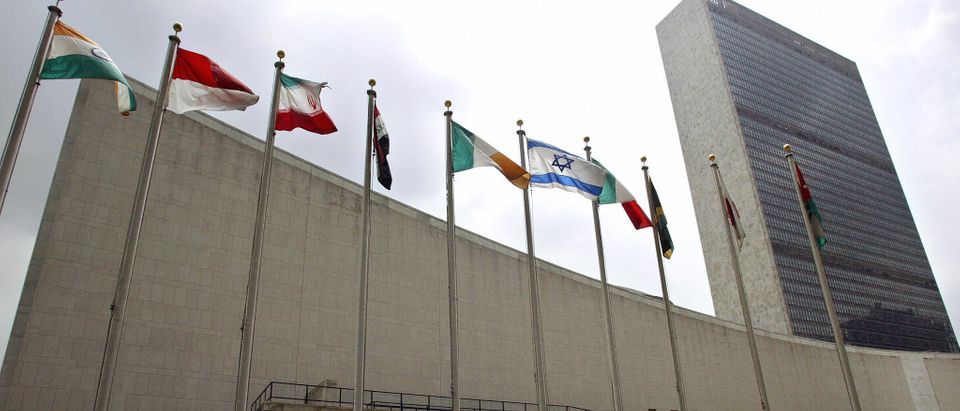WASHINGTON—Texas Republican Sen. Ted Cruz submitted an amendment to the Defense Appropriations Bill Tuesday to ban anyone from using Pentagon funds to implement the Arms Trade Treaty. Similar language is also included in the lower chamber’s version of the legislation.
The text of the amendment states, “None of the funds appropriated or otherwise made available by this division may be obligated or expended to implement the Arms Trade Treaty until the resolution of ratification of the Treaty is approved by the Senate.”
The Arms Trade Treaty (ATT) is a 2013 United Nations treaty to regulate the $70 billion global arms trade signed by then Secretary of State John Kerry on behalf of the United States and sent to the Senate by President Obama in 2016 for ratification following Hillary Clinton’s election loss. The Congress opposed this treaty, and it remains unratified.
Nevertheless, unratified treaties, like the Ottawa landmine and Oslo cluster munitions accords, have managed to find their way into U.S. policy.
Jim Shields, head of the U.S. Army’s Program Executive Office Ammunition said in May of 2017 that U.S. policy on both mines and cluster munitions were “shaped” by these unratified treaties even though the U.S. had not signed either, so Second Amendment advocates became concerned with the now unratified ATT.
Second Amendment advocates including the National Rifle Association and the Heritage Foundation have both called upon President Trump to “unsign” the treaty, the previous administration agreed to.
Pro-gun activists remain concerned the treaty has unclear language that could be broadly interpreted by domestic gun control advocates to impose further regulations on the American people.
Fundamentally, the ATT, demands that participant nations create a regulatory system for the export and import for most conventional arms and prevent “their diversion, as well as the primary responsibility of all States in establishing and implementing their respective national control systems…”
The treaty applies, for example, to not only battle tanks and combat aircraft but also to small arms and light weapons. Additionally, the control system must stop all transfers of arms that can be deployed in the use of crimes against humanity or violate international humanitarian law and international human rights law through an export.
“Defenders of the ATT commonly argue that the treaty sets a minimum standard that is lower than the existing U.S. standard for arms exports. They therefore conclude the ATT will have no effect on U.S. policy. This argument is incorrect,” The Heritage Foundation argues.
The conservative think tank continues, “The standards at the heart of the ATT are not set in stone: The definitions of crimes against humanity, IHL, and IHRL will evolve over time. By signing the ATT, the U.S. has committed itself to changing its practices as the standards that define the ATT change. Were the U.S. to ratify the ATT, that commitment would be even firmer. The ATT is, in effect, an escalator: Once you step onto it, you are no longer in control of your direction of travel.”
Officials at the U.N. have already signaled their interest to push the interpretation of the policy further. In 2016, following the Pulse nightclub shooting in Orlando, UN High Commissioner for Human Rights Zeid Ra’ad Al Hussein called for the U.S. to impose “robust gun regulation” in the name of “human rights.”
Back in February U.N. Secretary-General Antonio Guterres, Reuters reported, that the Secretary General wants “to start international negotiations to cease the “use of explosives in urban areas.”
Kerry Picket is a correspondent for NRATV and host on SiriusXM Patriot 125


